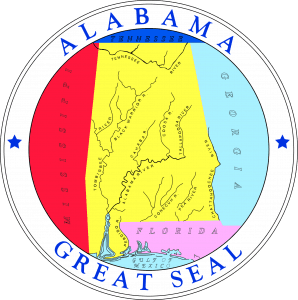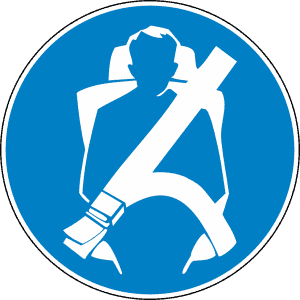
Each state in the U.S.A. has the right to craft its own laws in a way that serves its residents. However, some states have laws on the books that might not serve everyone – and in Alabama, a few of them are in personal injury law. If you’ve been injured in Alabama, we suggest that you learn about these laws – and sooner rather than later.
Working with a personal injury lawyer after an injury incident is the best way to ensure you know how all applicable laws could affect your case and compensation.
If you were hurt by another party’s negligence and have concerns about any of these laws or want to learn more about your options for taking legal action, connecting with a local law firm is a good idea.
Ouch! 5 Alabama Injury Laws That Could be a Pain for Victims
For a free legal consultation, call 800-537-8185
Guest Passenger Statute
Alabama is the only state with a statute that prohibits an action for injury or death by any guest passenger against an owner or driver of a vehicle, unless the owner or driver is guilty of “willful or wanton misconduct.” (Willful or wanton misconduct is determined by the specific facts and circumstances of each case but can include things such as speeding, fatigue, and/or intoxication.)
What this means is that you will not be able to recover money through an insurance claim if you were riding in a vehicle with a friend or extended family member when they made a mistake behind the wheel and caused a crash. This may make it difficult to recover money damages to pay your medical bills or cover lost wages and other losses.
The rationale behind Alabama’s guest passenger statute is purportedly to prevent collusive and fraudulent lawsuits by the passenger and driver and to encourage hospitality among drivers by protecting them from ungrateful passengers.
In reality, the true beneficiary of the guest passenger statute is not the careless driver who injures his or her guest passengers, but the driver’s automobile insurer.
Survival Statute
Imagine if a family member were injured in an accident through no fault of his own, and he dies before he can file suit against the person who injured him. Alabama is the only state in which an injury claim does not survive the death of the victim.
If the victim filed a lawsuit against the wrongdoer before dying, the claim survives; otherwise, the claim is lost. This rule means that for a victim’s survivors, there is no compensation for any of the ordinary damages recoverable in an injury action, such as medical bills, lost wages, or pain and suffering for someone who dies before filing a lawsuit.
For example, imagine your loved one died in a traffic accident in Huntsville. You will not be able to pursue damages from the at-fault driver in the crash to repair the vehicle or cover your loved one’s medical bills. Your only option will be a wrongful death action under Alabama law.
Click to contact our personal injury lawyers today
Wrongful Death Damages
Alabama is the only state that limits damages in wrongful death cases to “punitive damages.” Punitive damages penalize the defendant—the liable party—for their bad behavior. They are rare in personal injury cases in Alabama, making it even more unusual that they are the only damages recoverable in wrongful death actions.
In other words, jurors must consider only the wrongdoing of the defendant and cannot consider the monetary value of the decedent’s life or the need to compensate the decedent’s family when deliberating how much they will award in these cases. This also means that each case requires a lawsuit and going to court, because only the court can award punitive damages.
In every other state, wrongful death damages compensate the victim’s survivors for their losses, such as:
- Lost earning capacity
- Loss of companionship
- Loss of economic and emotional support
In Alabama, however, those damages are irrelevant, as the amount of damages awarded to the victim’s family is based only on the severity of wrongful conduct by the defendant. This may make it difficult to recover enough compensation to cover the related expenses and losses in a situation where the at-fault party made a careless mistake and did not act in a malicious way.
For example, if a driver failed to see a cyclist when turning right and collided with the bike, the jury may be understanding that this is a difficult time to spot a vehicle when you were not anticipating them in the intersection. In other states, the family could still recover money for their expenses and losses.
In Alabama, they may not receive an award or only receive a small payout, depending on the jury’s verdict.
Collateral Source Rule
The “Collateral Source Rule” essentially states that benefits received by the injured victim, such as health insurance, should not lessen the damages otherwise recoverable from the wrongdoer. In other words, an injured victim should not be punished, and the wrongdoer should not escape liability for negligent behavior simply because the injured victim has contracted to receive health insurance benefits.
In many states, the wrongdoer is not allowed to introduce evidence of “collateral sources”; however, in Alabama, such evidence is admissible and can be used to reduce the award that the injured victim ultimately receives.
This could come into play in more ways than you would think. Not only because of health insurance benefits, but because your job let you use sick days or other paid time off, and many other circumstances. Your attorney can explain more about how this could come into play based on the facts of your case.
Pure Contributory Negligence
“Contributory Negligence” is negligent conduct by the plaintiff/injured party that combines with negligent conduct by the defendant/wrongdoer to produce an injury. We like to refer to this as “shared fault” in an incident. Shared fault is common in some types of injury accidents, although the percentage of fault assigned to the victim may be low.
In Alabama, along with three other states and the District of Columbia, if the plaintiff/injured party is determined to be even 1% at fault, the defendant/wrongdoer can use the contributory negligence defense and bar the claim regardless of how egregious the defendant’s conduct may be.
This makes it difficult to move forward with some types of claims. For example, trip and fall cases often include shared fault. If a jury determines the victim’s fall was 98% the fault of the property owner and 2% the fault of the victim failing to see the hazard, this law will bar the plaintiff from recovering damages for their injuries.
Morris Bart Alabama Attorneys Can Help
These laws carry serious implications for victims of accidents and could reduce the amount of a victim’s compensation relative to the amount that might be awarded in other states. However, the lawyers at our Morris Bart & Associates, LLC offices in Birmingham, Huntsville, Montgomery, and Mobile will know how to help you get the most out of your situation.
If you have been injured in Alabama through no fault of your own, call a Morris Bart personal injury attorney today.
Questions?Call 800-537-8185
to find a Morris Bart office near you.





